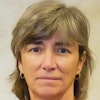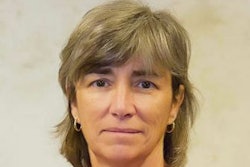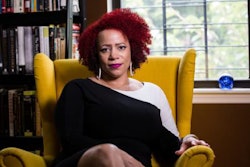This time last year, I wrote about the disappointment I felt when I did not receive an offer for a tenure- track position that I felt really good about. Against the advice of mentors, I placed geographic limitations on my search for tenure track positions and knew early on that the likelihood of finding a position in the tri-state area would be challenging. Coincidentally, a new line was created at a school in an area I was open to and after an intense but positive interview process, the phone call informing me that the committee decided to move forward with someone who had already earned their doctorate crushed me.
Realizing that my best was not enough, I felt defeated. At first, I thought that my feelings were rooted in thinking that not starting on the tenure track would mean I “failed” at being an academic. However, I recognize that the imposter syndrome and never-ending feeling that I was not “good enough” in the first place was what made me think that becoming a tenure-track assistant professor was the best next-step for me.
I associated my belonging and success in academia with persisting and succeeding in the “traditional pathway” of doctoral students. While no one specifically told me, “you need to get a tenure-track position at a research institution,” I was socialized to believe that was the only goal I should aspire to.
I did not start my doctoral journey fully convinced that I wanted to be a professor. After spending three years at Cornell University as an Assistant Dean of Students, I recognized that playing an important role in students’ lives while in college was very fulfilling to me, but my growing curiosity of inequities in education and the lack of diversity in the professoriate led me to consider furthering my education and perhaps becoming a professor. As a graduate student, I became involved in a research program focused on diversifying the professoriate with Latinx students from Hispanic Serving Institutions. Through this research, I felt empowered and inspired to contribute to that cause by becoming a professor and mentoring other Latinx students to do so as well.
However, on the way to reaching this goal, I lost a sense of purpose as to why I was drawn to higher education as a career in the first place—to help students like me thrive in college. Throughout my entire educational career, I had been blessed with educational opportunities. My mother sacrificed a lot to send my brother and I to private Catholic schools through 12th grade. I was able to attend Cornell University through their generous financial aid package and as a student in the Higher Education Opportunity Program. It was at Cornell that I lost confidence in my academic ability and questioned whether I was capable and deserving to be in spaces where I felt unwanted and doubted. This is what I wanted to change for myself and students like me. This is what led me to pursue a career in higher education. As a graduate student, I saw this work manifesting through my research agenda, which focuses on first-generation students in higher education, and through the mentorship I would be able to provide to aspiring graduate students and higher education professionals.
As I learned about what it takes to be “marketable” for tenure-track positions, my focused shifted from impacting students’ lives to trying to publish as much as possible, submitting countless conference proposals, and networking. I realized early on that who you know and who knows about you, can play a significant role in what opportunities you may be exposed to while on the faculty market.
Despite the mentorship and support I received from my advisor, program faculty, and peers, I could not ignore the baggage I carried as a first-generation, low-income student. Feeling like I invaded spaces that were not meant for me but that I was “allowed” to participate in because of opportunity programs or my network, I was eager to get involved in anything that would lead to a line on my curriculum vitae, or an opportunity to develop relationships with faculty and other graduate students. As I reflect on this blog column, I realize that this was another vehicle for me to claim my worth and space in academia, even though I was the one that needed the most convincing.
![faculty-salary[1547520018]](https://img.theeduledger.com/files/base/diverse/all/image/2021/04/edu.faculty-salary1547520018-e1618425046370.png?auto=format%2Ccompress&fit=crop&h=100&q=70&w=100)


![faculty-salary[1547520018]](https://img.theeduledger.com/files/base/diverse/all/image/2021/04/edu.faculty-salary1547520018-e1618425046370.png?auto=format%2Ccompress&fit=crop&h=167&q=70&w=250)








